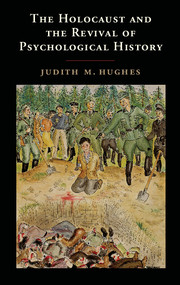1 - Hitler
Published online by Cambridge University Press: 18 December 2014
Summary
Was Adolf Hitler still alive? Had the German leader somehow managed to escape from his bunker beneath the Reich Chancellery? Was he being sheltered in the British occupation zone? In the autumn of 1945, more than four months after the end of the war in Europe, Soviet officials were answering these questions with a “yes” and spreading the word. Brigadier Dick White, deputy director of MI6, determined to investigate the circumstances surrounding Hitler’s death and thus scotch the Soviet rumors. So he dispatched Major Hugh Trevor-Roper to Berlin. The major was well equipped to discover the truth: he brought to his task the skills of a professional historian as well as a thorough knowledge of the German High Command, acquired through his wartime monitoring of the anti-Hitler elements within it.
In less than six weeks, Trevor-Roper finished his job. Thanks to eyewitness testimony of officers and aides who had been there, he established that Hitler, on April 30, had shot himself and that his body had been taken into the Chancellery grounds and incinerated beyond recognition. “His report, drafted at the end of October 1945 and given out in condensed form to the press on 2 November,” was never published in full. A year later, Trevor-Roper put the final touches on a book manuscript – it appeared in 1947 – that narrated Hitler’s end: the double suicide of him and Eva Braun, his longtime companion who became his wife hours before his death. But the book, The Last Days of Hitler, went beyond the 1945 report. In the ruins of the bunker, in his interviews with the defeated followers of Hitler, Trevor-Roper discovered “something he hadn’t expected to find, a deeper mystery than whether Hitler survived: the survival of Hitler’s spell.” While one might have anticipated encountering the power of the spell when Hitler was a demagogue on the rise or after he had become the triumphant Führer, “Trevor-Roper was surprised at the extent to which the spell still held sway after ignominious defeat.” In The Last Days, he sought to “describe the spell as an inescapable fact.” He did not “try to explain it so much as evoke it. And yet by evoking it so eloquently, he came to be accused of perpetrating, indeed of falling under, the spell, of giving it, giving the Hitler myth, a posthumous life.”
- Type
- Chapter
- Information
- Publisher: Cambridge University PressPrint publication year: 2014

